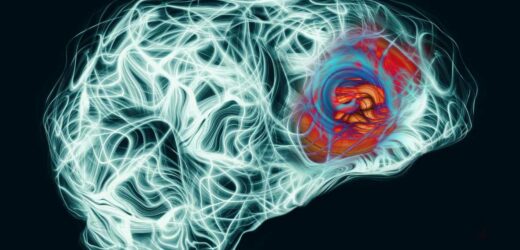WE all get headaches from time-to-time, but migraines can present a whole host of different issues.
They are debilitating and affect around one in seven people, with some losing up to eight days a month due to the pain.
Speaking to The Sun, specialist Dr Katy Munro, from the National Migraine Centre said the situation for sufferers is bleak.
"It’s under-diagnosed, under-managed and under-treated.
"Those with episodic migraine typically lose 4-8 days per month to migraine and those with chronic migraine will experience at least 8 migraine days and over 15 headache days per month.
"The result – a substantial amount of people’s daily lives will be lost to ill health in their most productive years."
Read more on migraines
The truth about agonising migraines – and when you need to see a GP
What causes migraines and how do you get rid of them?
If you often struggle with migraines, Dr Munro said there are ten ways you can predict their arrival.
1. Throbbing
For most people, their migraine starts as a headache.
This will usually feel like a dull ache, but Dr Munro said that as it develops into a migraine, it will often cause a debilitating throbbing which can be described as pounding, banging or pulsing in the head.
Most read in Health
Our baby had zero chance of survival but now three months on she's thriving
How looking after your gut cuts the risk of illnesses like cancer & diabetes
Full list of 20 common Covid symptoms right now – as cases surge 30% in a week
My husband left me & I get skinny shamed in the street – my reality is a living hell
The guru explained : "The pain tends to range from moderate to severe, often preventing sufferers from doing normal day to day activities, but it can be milder.
"The pain becomes even worse when moving around and can severely interfere with daily life."
2. Stiffness and pain
As your migraine progresses, the cervico-trigeminal nerve system is activated. This is a collection or neurone cells outside the central nervous system.
Because of this, pain signals move upward to the brain, and also down to the neck and shoulders, causing further discomfort.
"The area can become sensitised leaving the muscles in the neck tense and tight.
"Neck pain can also trigger a migraine attack," Dr Munro said.
3. Fatigue
"Fatigue is a common symptom of migraine with many people feeling extremely tired before and after attacks, suffering with low energy and frequently yawning," Dr Munro said.
"Poor sleep routines, fluctuating blood glucose levels and dehydration may contribute," she added.
4. Nausea and vomiting
Experts believe that during a migraine attack, the gut slows down which can lead to nausea, or even vomiting.
Dr Munro said that it also slows down the absorption of painkillers which may reduce their effectiveness.
Some people, especially children, may experience bad tummy pains as part of their migraine attack (abdominal migraine), she said.
When to see a doctor
You should see a GP if you have frequent or severe migraines.
The NHS said you should make an appointment if you have them more than five days a month.
You should do this even if they can be controlled with medication, the experts said.
Call 999 if:
- you have paralysis or weakness in one or both arms
- have slurred or garbled speech
- a sudden headache
- headache with a high temperature, stiff neck, mental confusion
SOURCE: NHS
5. Sensitivity
When you have a migraine, a slow wave of electrical activity travels over the surface of the brain.
Dr Munro said: "This is sometimes seen as a warning symptom called an aura which comes and goes within an hour before the headache phase starts.
"Only about 25 per cent of people with migraine experience aura.
"Aura usually consists of visual disturbances, such as zigzags, flashes of different colours and light, blind spots, or even other disturbances, such as odd smells, tingling on one side of the face or in an arm or leg and difficulty speaking."
She added that people who experience the condition are often highly sensitive to smells like perfume, to touch or to sound.
"They usually want to stay still and quiet in a darkened room during attacks," she said.
6. Hormones
Women are three times more likely to suffer with a migraine than men.
This is due to hormonal changes in oestrogen which can occur before or during periods, pregnancy and the perimenopause.
"In the perimenopause, when periods can become erratic and hot flushes, night sweats, mood swings, memory problems and other symptoms start to be a problem, many women also find their migraine attacks worsen.
"Dizziness symptoms can start during perimenopause too," Dr Munro said.
7. Mood changes and brain fog
Many people often feel irritable or depressed, before, during or after migraine attacks due to the changes in the brain, Dr Munro said.
"Anxiety about getting an attack is very common. Brain fog and poor concentration can be extremely troublesome and may impact school or work life," she added.
8. Dizziness
Dr Munro said that dizziness can sometimes happen due to the aura that's created during a migraine.
Dizziness may also occur, she said, due to a type of migraine called a Vestibular migraine where headache is less of a feature.
She added: "This is an uncomfortable feeling and can make people with migraine feel very lightheaded and unsteady.
"It may be associated with nausea and vomiting too."
9. Weakness
Some people with migraine experience true weakness of one side of the body (hemiplegic migraine) but in most it is more of a sensation of weakness which resolves within an hour, Dr Munro said.
Some people can also experience difficulties in finding their words, sometimes slurring their words and having speech problems, she added.
Dr Munro added that migraines are a variable condition and said that many may not realise they are having an attack, simply dismissing it as a headache.
The lucky few will have one or two in their lifetime, while others might suffer for days on end.
She added: "They can happen with or without warning, making even day to day tasks challenging and having a high impact on the person with migraine but also their family, friends, social and work life.
Read More on The Sun
I’m a time-traveller from 2671 – these huge events are coming VERY soon
You’ve been using your Air Fryer wrong & it’s why it’s such a nightmare to clean
"Symptoms may follow a consistent pattern or can change from attack to attack and also throughout a person’s life.
"More understanding, research and better treatments are needed for this very common condition."
Source: Read Full Article











